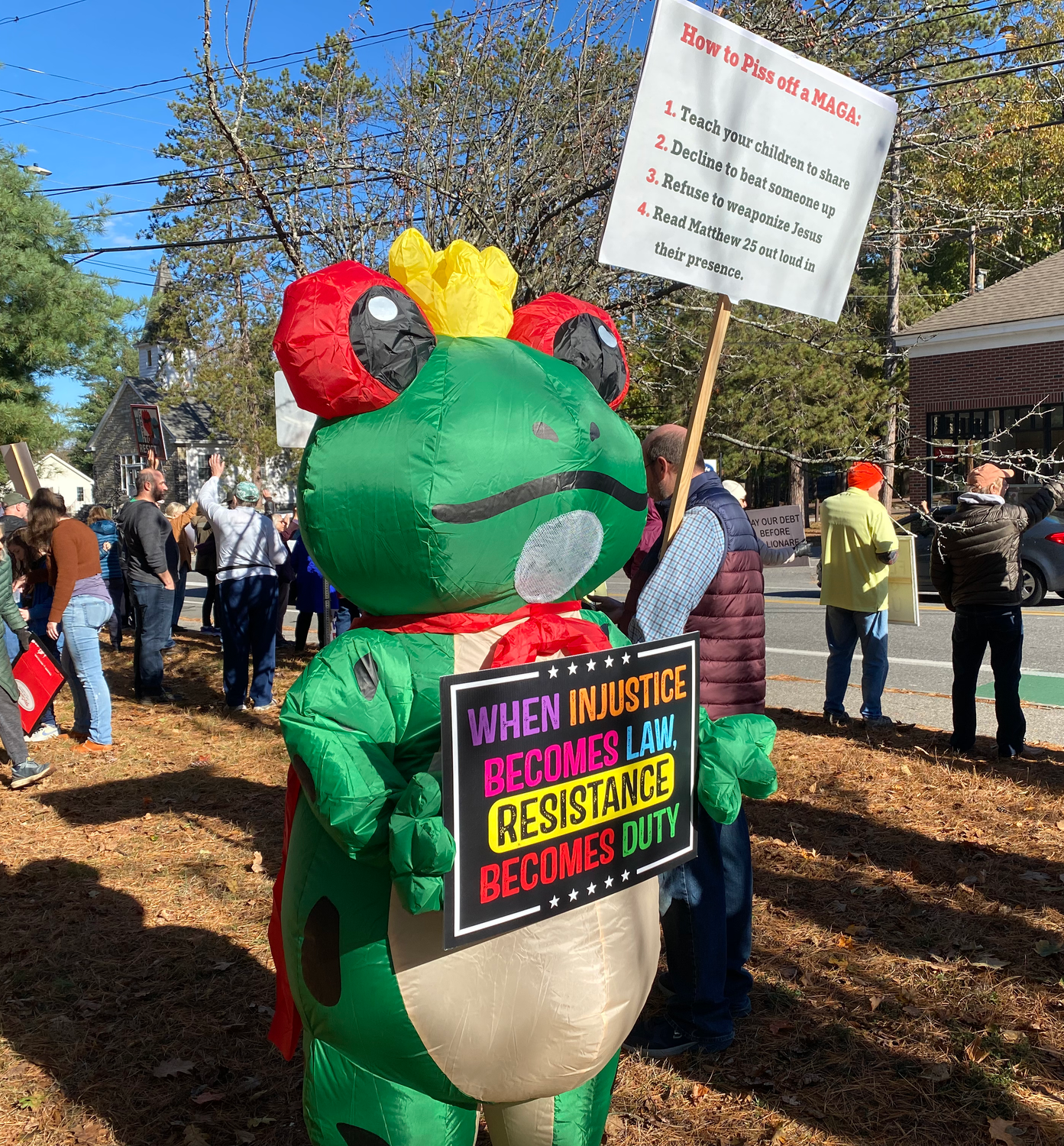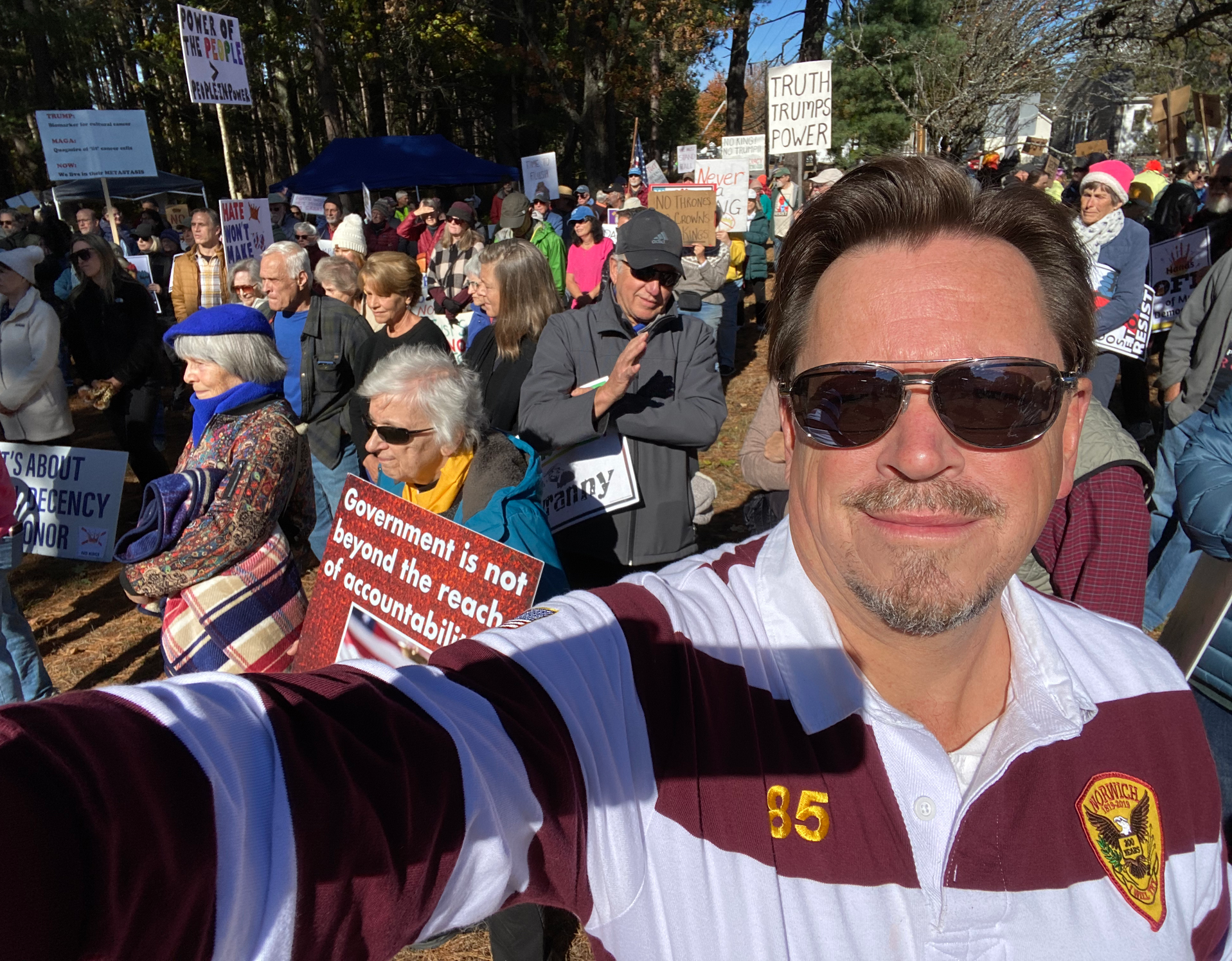No Kings: A Public Call For Private Dignity
27 October 2025

The Pursuit of Happiness Over Politicization of Everyday Life Over seven million people gathered across the nation to express their right to be left alone. This generation may not remember a time when every decision (what car to drive, what sticker to use, what opinion to express, how to talk with friends and family…) was not measured by politics. The sheer invasiveness of politics in private lives and in our public spaces warns us that we are navigating how life will look in a totalitarian state. That is not the promise and hope of the American Revolution nor why our imperfect Republic was established. We were created in the pursuit of life, liberty, and the pursuit of happiness, not, as the Declaration of Independence proposed, freedom from the autocrats and religious ideologies that divided and destroyed Europe for personally perceived gain.
A Process Not An Event Mass atrocity crimes take a long time to develop. Institutions have to be weakened, perpetrators need to be recruited, collaborators and away-lookers need to be cultivated. We see past viciousness and atrocities as something that would never happen here…until they begin to. Our senses, reactions, priorities, and energies are dulled, and we enter a new reality. Can we perceive that things have shifted and continue to shift or are we too busy accommodating? The powerful, choosing power, wealth, division, and exploitation are keenly aware of the momentum they are creating. Their interests are not ours and they know it.
Warning Signs Experts in my field have enough longitudinal evidence of how societies find themselves in increased risk of atrocity. My former colleague Dr. James Waller has identified a number of those areas of concern such as governance and economics. Democratic governance decreases the risk of atrocity as people’s needs are heard and political stability and future expectations of stability frame discussions and policies. However, when a minority elite has power and uses an exclusionary ideology to secure that power, a country’s risk increases. Do those in power try to include a vast majority or do they isolate, manipulate ever-present divisions, and villainize those in the opposition? Is violence and militarism promoted as virtue? Are state structures secure and trusted or weak and corrupt? Are there checks and balances in place? Economic health can also reveal risk factors. Are there levels of economic discrimination? Is there a growing wealth gap with unequal access to goods and services? Are there gender inequalities? Are education and free speech under assault? Is a country isolated or connected to other nations. The more interconnectedness, the more international laws apply.
The Founding of the United States The Declaration of Independence in 1776 and the American Revolution was, in great part, a response to and a rejection of religious violence in Europe. “He is at this time transporting large Armies of foreign mercenaries to compleat the works of death, desolation and tyranny, already begun with circumstances of cruelty & perfidy scarcely paralleled in the most barbarous ages…” That “barbarous age” being referred to was the Thirty Years’ War (1618-1648) which had seen Europe devastate itself in wars of Christian sectarianism. The Treaty of Westphalia that ended that conflict stopped religious massacres and creating the guiding principle that state sovereignty would replace religious hare and identity by establishing a balance of powers, limiting mercenaries, and creating laws to protect states. This was the guiding principle in the establishment of the United States. The First Amendment to the U.S. Constitution in 1791 read: “Congress shall make no law respecting an establishment of religion or prohibiting the free exercise thereof; or abridging the freedom of speech, or of the press…”
Crossing the Threshold Triggers that allow a society to cross the threshold into mass violence are varied. They can come out of anywhere: natural disaster, assassinations, and/or elections when the minority elite feel threatened. No one can predict when that might happen. However, if those in power promote conspiracy theories, increasingly use and justify violence, ignore or rewrite history and claim to be defending or resurrecting a better, mythical past, then we need to pay attention.
Questions to Ask Are we really at risk of mass atrocity and authoritarianism? We need to ask some simple questions: Is there a defined target group and direct, public incitement to commit violence? Are the patterns consistent with extensive, group-selective violence, intent on destruction of groups under the would-be perpetrator’s control? Are significant segments of a target group subject to violence? Have genocidaires articulated a logic of annihilation (classifying the target groups and identifying “them” as an existential threat)? Is the violence organized, deliberate, and systemic? Is violence sanctioned by those in power. Is the violence spread out to target a geographic area? Is there a capacity to inflict large scale violence?

My Turn I am a patriot of our Republic. I am alert to the warning signs that currently exist in our country. I know also that nothing is inevitable – no matter how probable it might seem. I know that if we give into fear and powerlessness, we lose our greatest asset: the internalized belief in and dignity of our democratic experience. We will never agree on everything, and it is that acknowledgement that keeps us free. We do not seek to convert as much as to protect. The “No Kings” demonstrators demonstrated joy, happiness, silliness, discipline, non-violence, and reminded us of how life used to be and can be again. Make no mistake. Once those in power embark on an anti-democratic agenda seeking personal wealth, power, violence, and lawlessness disguised as virtue, we are all at risk. The very momentum they create radicalize individuals, institutions, and societies. However, by tapping into our history of dissent and the social contract that has bound us together in this experiment, separating church and state and allowing for private freedom, we can find the strength to resist. Nothing is inevitable unless we despair and isolate ourselves. Too many have sacrificed to allow for a kleptocracy to insult us. We must embrace our diversity as a strength, or silliness and sense of humor as a weapon, and our dignity and self-worth to be our foundation.